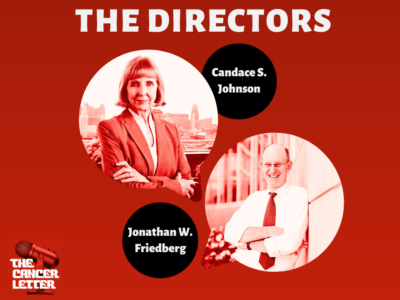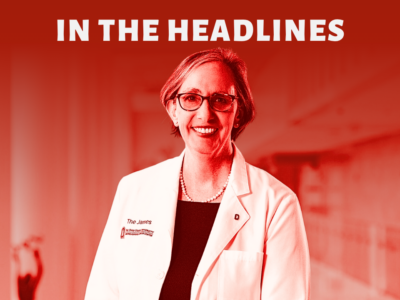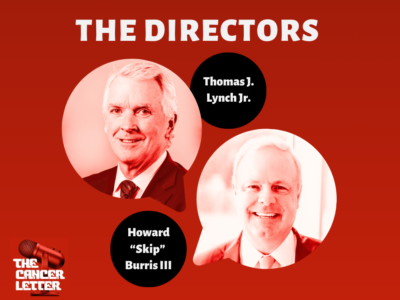Candace S. Johnson leads America’s oldest cancer research center and Jonathan W. Friedberg leads the newest NCI-designated center. Their catchment areas are contiguous, their faculty and staff members collaborate often, and together their institutions embody the culture of NCI-designated cancer centers.
“Your entire practice, cancer has been associated with an aging population, and then you have a young, beautiful, healthy-looking woman like Alisa Secaida come into your office, it's not a surprise that the doctor, their knee-jerk reaction would be like, ‘Maybe just slow down,’” said The Cancer Letter’s Claire Marie Porter.
“Patients are counting on us, and this remains the best time to be involved in cancer research,” W. Kimryn Rathmell said to The Cancer Letter.
The Oncologic Drugs Advisory Committee held its first session since President Trump’s inauguration, with a two-day, back-to-back marathon meeting, signaling a return to business at FDA after significant upheaval at the agency.
Wafik El-Deiry, director of the Legorreta Cancer Center at Brown University, joined The Cancer Letter’s weekly podcast to discuss his recent guest editorial—and confirmed his candidacy for director of the National Cancer Institute.
Thomas J. Lynch Jr. and Howard A. “Skip” Burris III lead two institutions that couldn’t be more different—an NCI-designated Comprehensive Cancer Center on one side of the country and a for-profit research enterprise on the other—but they stay up at nights worrying about the same thing.
Peer review, registries, and evidence-based patient information have taken a hit in Trump’s first 100 days in office.
The Cancer Letter has covered—and will continue to cover—all the ways in which the current administration is fundamentally reshaping cancer research in the U.S. But this week, The Cancer Letter and the podcast focused on a patient story.
The National Cancer Registries Program, or NPCR, is a relatively small but highly impactful 33-year-old CDC program that gauges disparities in cancer and tracks progress against the disease. So, why was it left out of the Trump administration’s preliminary budget?
A confidential Trump administration budget document obtained by The Cancer Letter called for a 40% budget cut to NIH and a restructuring of the 27 existing NIH institutes and centers down to just eight. But what else is in it?















